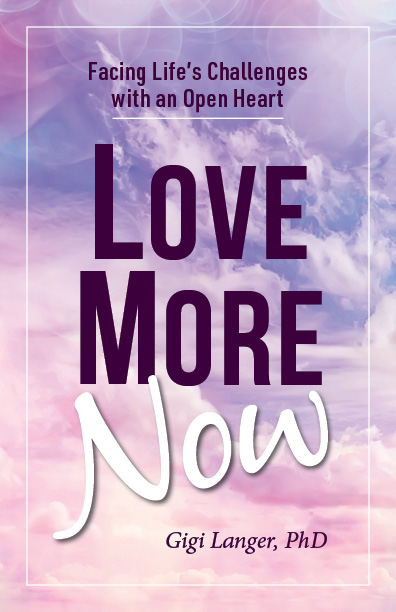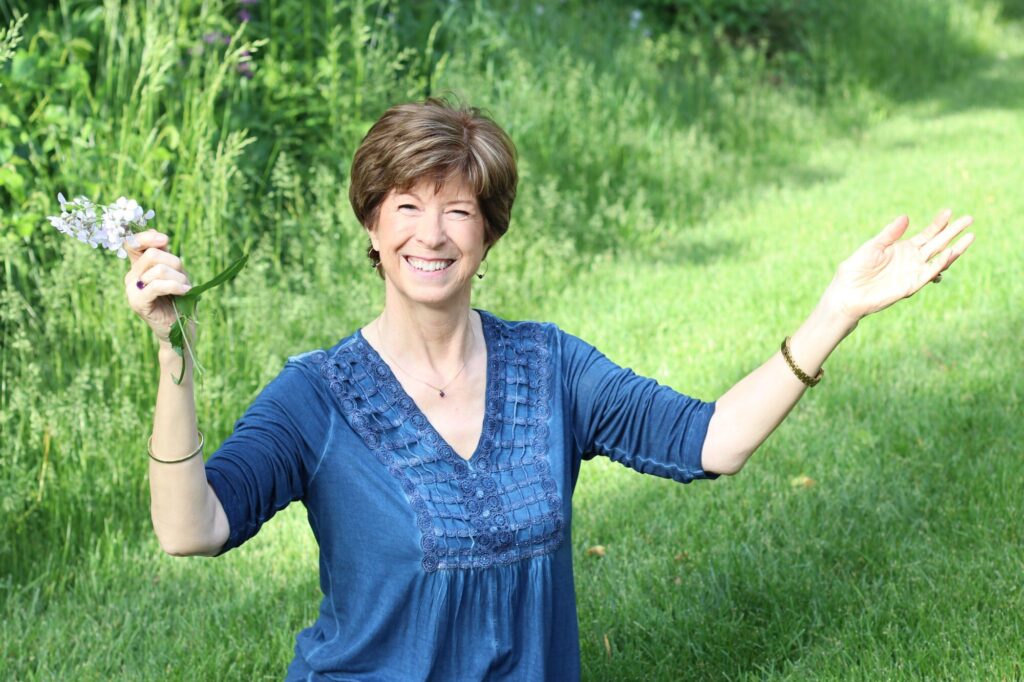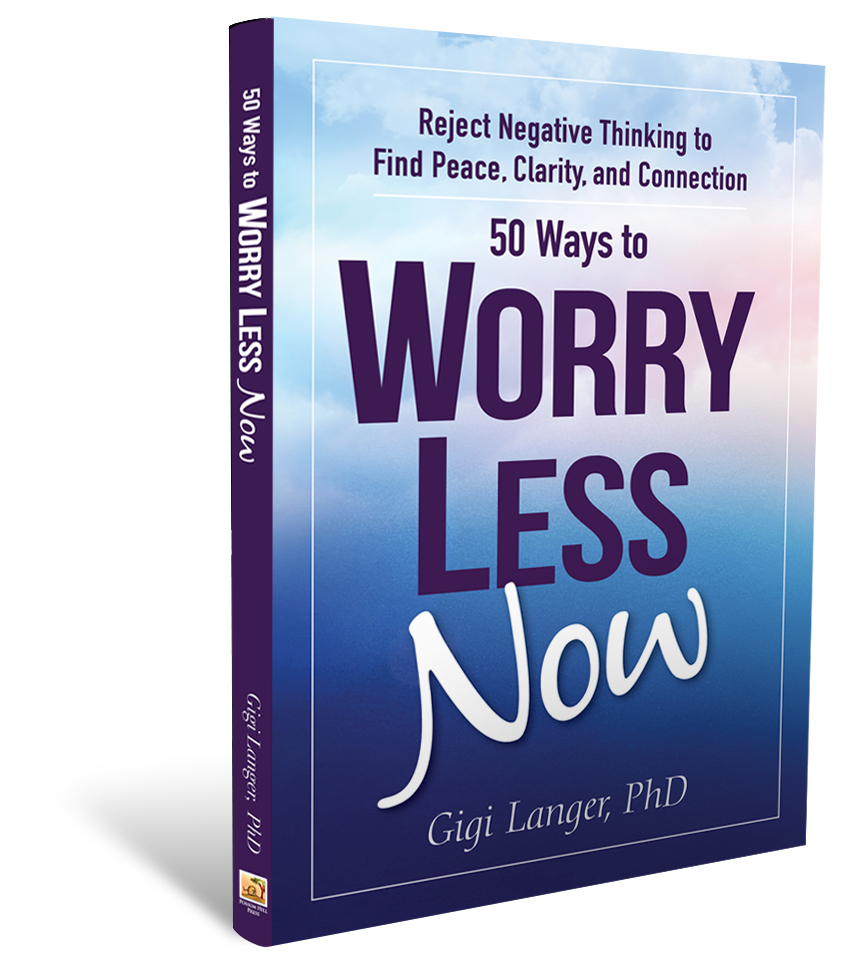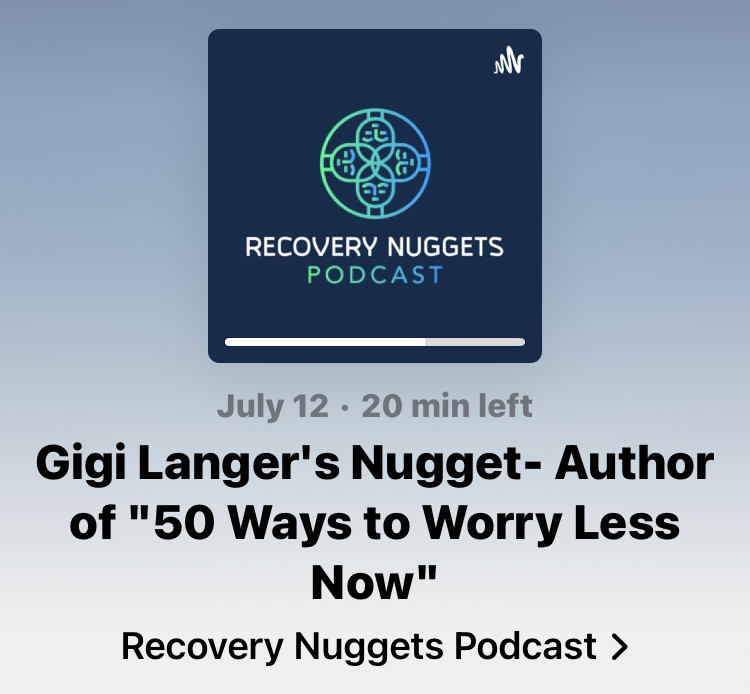Trust me, if your life isn’t working, your relationships are awful, you grew up in a dysfunctional family, or you have closed your heart to yourself or others, you might be using addictive habits to find relief from your everyday troubles. Read on if you’d like to find a practical, peaceful way of living with the uncomfortable realities and uncertainties of everyday life.
Welcome to my posts about recovering from alcoholism and other substance abuse disorders. This series of blogs describe how you can recover from dependence on alcohol or other harmful habits. I’ve taken these ideas from Chapter 6 in my newest book, Love More Now: Facing Life Challenges with An Open Heart (2023).
I hope you find the examples, guidelines, and stories helpful to your recovery from whatever is eating away at your ability to freely give and receive love. Also see my podcasts about recovery on YouTube and at GigiLanger.com.
What Is Addiction?

Addiction is like a cancer that overpowers and destroys its host. —Bohunk
I believe that alcoholism and other addictions are the ultimate heart closers. When fear whispers, I can’t stand feeling this way. I must numb myself to get relief, the person has lost the ability to access the True Self’s hope, trust, and peace of mind.
As expressed by many, they are cut off from “the sunlight of the spirit,” or what we’ve been referring to as Loving Energy or True Self. Such barren loneliness is the hallmark of the disease of addiction.
Some erroneously believe that people choose to be addicted, and therefore, it’s a personal failure: If they only tried harder, they could overcome it. But this is far from the truth. The official medical opinion is that addictions are caused by a genetic predisposition and social factors. Most important, the disease is considered a brain disorder as serious as any neurological or mental illness.
Addictions include the use of alcohol, illegal drugs, food, and prescribed drugs (not just opiates, but any pill that immediately soothes our emotions). Gambling, shopping, and sex can also become addictive. Although the addicted person believes the habit helps them get through life’s challenges, it ends up hurting more than helping. In the U.S. alone, one in five deaths among twenty to forty-nine-year-olds were caused by alcohol consumption.
Do I Have a Problem?
Sometimes I wonder if addicts aren’t all that different from anybody else, they are better at lying to themselves. —Taylor Jenkins Reid (Daisy Jones and The Six)
What does addiction look like? It’s a chronic, relapsing disorder characterized by the following:
- Compulsive behavior or compulsively seeking the drug, alcohol, other substances, or behavior.
- Preoccupation with the substance or behavior.
- Continued use despite harmful consequences.
- Gradual escalation until control is lost.
- Long-lasting changes in the brain.
Please, don’t let denial get in the way. Take a long look in the mirror. You’re the only one who can do something about your problem. If you have two or more of the symptoms listed in this quiz, you probably need to see a doctor or therapist to begin recovering.
- There is a desire to cut down on use or unsuccessful efforts to cut down.
- The substance or activity is used in larger amounts, or for a longer period of time than was intended.
- The pursuit of the substance or activity consumes a significant amount of time.
- Th ere is a craving—a strong desire—to use the substance or engage in the activity.
- U se of the substance or activity disrupts obligations at work, school, or home.
- Use of the substance or activity continues despite the serious problems it causes.
- Participation in important social, work, or recreational activities drops or stops.
- Use occurs in situations where it is physically risky.
- U se continues despite knowing it is the source of escalating physical or psychological problems.
- Tolerance occurs, indicated either by a need for a markedly increased amount of the substance to achieve the desired effect or markedly diminished effect of the same amount of substance.
- Physiological withdrawal occurs, or a related substance is taken to block the discomfort.
How to Overcome Addictive Habits
You might ask, Why is this habit of mine a problem? Shouldn’t we all be able to feel better as quickly as possible? Not if we want to grow emotionally. Think of it this way: When we have unpleasant feelings, we have two choices— to numb them or to learn how to grow through them. The only way to awaken to your open-hearted True Self is to choose growth rather than denial.
When you do the work to recover your best self, you’ll have no need to medicate your unwanted feelings away, no matter what is going on in your life.
Unfortunately, in our society, we face the belief that we can’t have fun without alcohol or other drugs. It’s in our faces every minute of every day, right? Partying is the main “fun” activity in our culture. Watching sports? Have a beer! Going out with friends? Have a few drinks! Unfortunately, the initial pleasure of a few drinks can accelerate into multiple drinks and drugs with no stopping point until we pass out, get arrested, or ruin our health.
Toward the end of our years of drinking, drugging, gambling, or other habits, we’re often completely isolated, as our closed hearts have separated us from healthy, loving people. If we’re lucky, we get the gift of desperation and begin to seek a new way of living.
Next Steps for You
Because my experience is with Alcoholics Anonymous (AA), and because of the recent Stanford research study documenting its effectiveness, I focus here on how working the Twelve Steps opens our hearts to our True Selves.
If you’re concerned about the “spiritual” or religious language in the Steps, you may substitute Loving Energy or True Self for AA’s use of higher power or God. But remember, it’s your conception of a power greater than your troubles that will save your life. Don’t let mere terminology stop you.
Stay tuned for my next posts on how the Twelve Steps can work for you.

My newest book, Love More Now: Facing Life’s Challenges with an Open Heart is only $9.99 –available from Amazon HERE.
Get my award-winning book, 50 Ways to Worry Less Now, for only $6.00 at GigiLanger.com/buy (or get e-book at Amazon)
Thank you for POSTING your REVIEWs on Amazon.
Gigi Langer has been sober 38 years, and holds a PhD in Psychological Studies in Education from Stanford University. Her 50 Ways to Worry Less Now won an Indie Excellence Award in 2019. Gigi worked at Eastern Michigan University for 25 years, and now lives happily in Florida with her husband, Peter and her cat, Easter.




